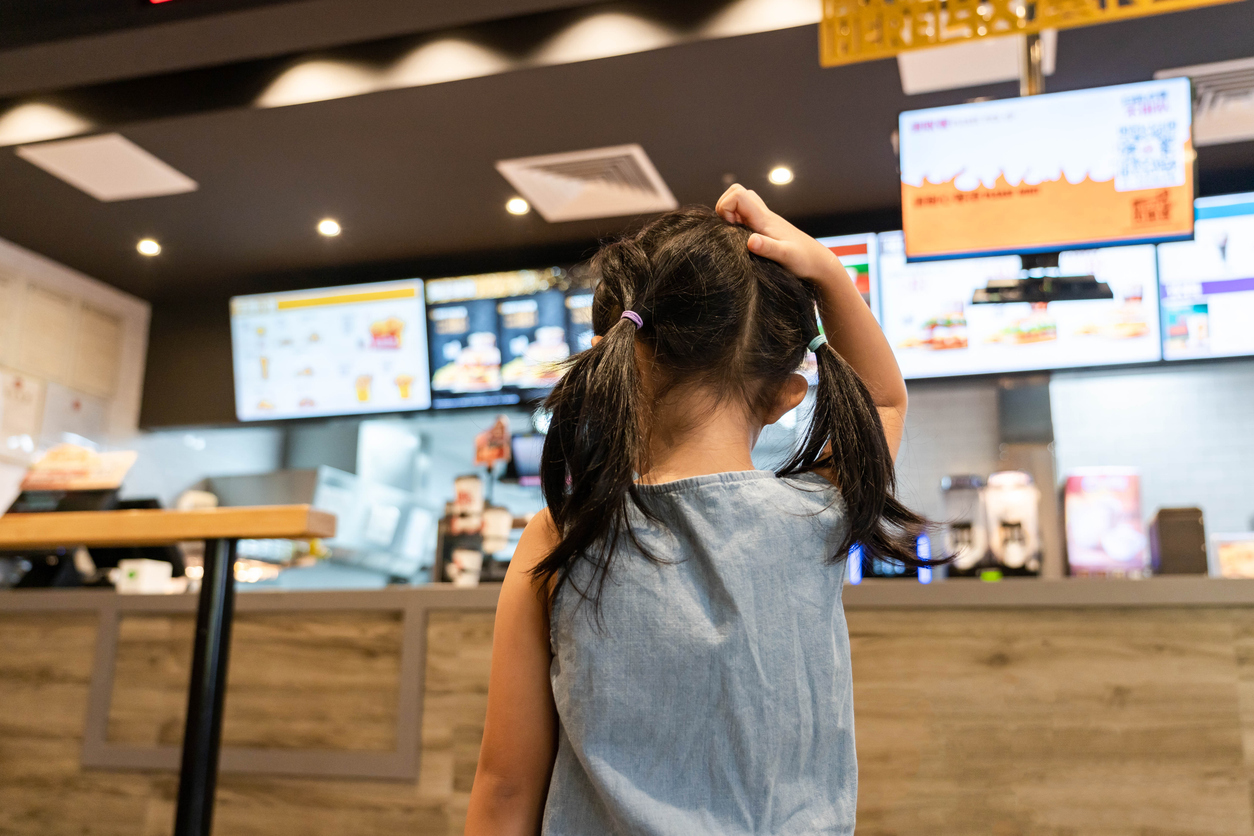Streamline your restaurant operations and provide a seamless ordering experience for your customers with the best restaurant kiosk ordering.
Self-ordering kiosks are revolutionizing the dining experience, particularly in quick-service restaurants. These innovative systems are rapidly becoming a common sight, offering a host of benefits that significantly improve the guest experience. Kiosks simplify the ordering process, allowing customers to browse, customize, and pay for their meals at their own pace, eliminating the potential errors and communication challenges that can occur during traditional, cashier-based ordering. The resulting efficiency not only leads to reduced wait times but also enables a highly personalized dining experience.
Whether you're a restaurant owner looking to optimize your operations or a customer eager for more control over your orders, get valuable insights into the world of restaurant kiosk ordering. From their rising popularity to tips for successful implementation, let's explore the various aspects of self-ordering technology.
What Are Self-Ordering Kiosks?
Self-ordering kiosks are innovative online ordering systems that revolutionize the customer experience by enabling them to place their orders without having to interact with a human server. These technologically advanced systems are designed to streamline the ordering process, significantly reducing waiting times and increasing efficiency for both customers and restaurant staff. With a user-friendly interface, customers can easily navigate through the menu, customize their orders according to their preferences, and enjoy a more personalized dining experience.
The Soaring Popularity Of Self-Ordering Kiosks
Kiosks are rapidly growing in popularity at U.S. restaurants, with more operators realizing the potential benefits they offer in terms of increasing sales and cutting costs. As digital ordering becomes a key goal for many restaurants, kiosks are playing an essential role in providing a convenient and efficient option for customers.
The global self-service kiosk market is experiencing a tremendous surge and is poised for significant expansion. According to recent projections, the market value is expected to reach an impressive $43.65 billion by 2028, a substantial increase from the current valuation of $26.45 billion in 2022. This dramatic rise signifies a compound annual growth rate (CAGR) of 8.71% during the forecast period from 2022 to 2028.
This trend underscores the growing acceptance and adoption of this technology in diverse sectors, chiefly the restaurant industry. The surge can be attributed to the numerous benefits that self-ordering kiosks offer, such as improved operational efficiency, enhanced customer experience, and cost reduction, among others. This bullish outlook for self-service kiosks suggests a promising future for businesses willing to embrace this technological evolution.
How Restaurant Kiosk Ordering Works
Using a self-ordering kiosk in a restaurant setting is a straightforward process. Customers can walk up to the kiosk and select their desired items from the menu displayed on the touchscreen interface. Here is the typical ordering process:
Intuitive User Interface
The key to a successful restaurant kiosk system is an intuitive user interface. Touchscreen technology and user-friendly design make it easy for customers to navigate through the menu and place their orders efficiently. The interface also enhances the overall dining experience by being visually appealing and easy to use.
Menu Integration
Restaurant kiosks offer seamless menu integration, allowing for real-time updates and the ability to showcase promotions or seasonal items. This makes it easier for customers to explore the restaurant's offerings and customize their orders according to their preferences.
Payment Options
Modern restaurant kiosk systems support various payment options, including traditional methods like credit cards and emerging methods such as mobile payments. It's essential to incorporate robust security measures to ensure customer confidence in using different payment options at the kiosk.
Integration With POS Systems
Integrating restaurant kiosks with point-of-sale (POS) systems offers numerous benefits for restaurant operations. It streamlines order processing, inventory management, and overall operational efficiency by synchronizing information throughout the restaurant.
Benefits Of Using Kiosk Technology In Restaurants
Implementing kiosk technology in restaurants comes with many benefits, such as increased order accuracy, enhanced customer experience and satisfaction, faster order processing, efficient resource allocation, cost savings, and data collection for business insights.
Increased Order Accuracy And Reduced Errors
With the use of restaurant kiosks, the potential for human error in the ordering process is significantly reduced. These systems capture customers' precise requirements, eliminating misunderstandings that can occur during verbal communication. This automation leads to an increase in order accuracy and a significant reduction in mistakes. Consequently, customers receive exactly what they ordered, enhancing their dining experience and improving their satisfaction levels with the service.
Enhanced Customer Experience And Satisfaction
Restaurant kiosks significantly enhance the customer experience and satisfaction by offering an intuitive interface that is easy to navigate. Providing customization options, these kiosks empower customers to tailor their orders to their preferences, adding or removing ingredients as required. The convenience and efficiency of this system eliminate the usual frustrations associated with dining out, such as waiting for a server or communicating complicated orders. The result is a more enjoyable, stress-free dining experience that leaves customers feeling satisfied and eager to return.
Faster Order Processing And Reduced Wait Times
The efficiency gains achieved through restaurant kiosks result in faster order processing times, leading to reduced wait times for customers. This improves customer satisfaction and contributes to the overall operational efficiency of the restaurant. The quicker turnaround times also increase the number of orders a restaurant can handle, resulting in higher sales and revenue.
Efficient Resource Allocation And Cost Savings
Implementing kiosk technology allows for better resource management, reducing the need for additional staff during peak hours. This results in significant labor cost savings. Additionally, these systems improve resource utilization by automating processes that would typically be done manually. This improvement in efficiency translates to cost savings and improved financial performance for the restaurant.
Data Collection For Business Insights
Restaurant kiosks collect valuable data on customer preferences and order patterns, providing insights that can be used to improve the restaurant's menu options, pricing strategies, and marketing efforts. Having access to real-time data allows business owners to make informed decisions based on customer trends and stay ahead of the competition.
Tips For Successful Restaurant Kiosk Implementation
To ensure a successful implementation, it's crucial to consider factors such as choosing the right kiosk software and hardware, designing a user-friendly interface, optimizing the ordering process, and exploring potential opportunities for upselling and additional revenue streams.
Choosing The Right Kiosk Software And Hardware
When selecting kiosk software, it's essential to consider factors such as compatibility with the restaurant's specific needs, scalability, and ease of integration with existing systems. It's also crucial to choose reliable and durable kiosk hardware that can withstand frequent use. This includes evaluating touchscreen technology, build quality, and maintenance requirements.
User-Friendly Interface
Designing a user-friendly interface is crucial for ensuring a positive customer experience with kiosk ordering. The key elements of an intuitive interface include intuitive design, clear navigation, and accessibility features. It's essential to consider the diverse range of customers that will use the kiosks and ensure that the interface is user-friendly for individuals of varying technological proficiency.
Optimizing The Ordering Process
Streamlining the ordering process through restaurant kiosks includes minimizing clicks, offering customization options, and providing clear instructions. It's also crucial to address potential challenges in the ordering workflow and propose solutions to optimize efficiency. This ensures a seamless and positive experience for both customers and restaurant staff.
Potential For Upselling And Additional Revenue Streams
Kiosks also provide opportunities for upselling and additional revenue streams. By strategically placing options for add-ons or promoting special deals within the interface, restaurants can entice customers without being too intrusive. This can potentially increase sales and revenue for the business.
Improve Dining Experience With Self Ordering Kiosk
Self-ordering kiosks have become a popular and innovative technology in the restaurant industry. By streamlining the ordering process and offering customization options, they can greatly improve the overall dining experience for customers. Implementing these tips for successful implementation can further optimize the benefits of using restaurant kiosk technology. Invest in a restaurant kiosk system and elevate your dining experience.





